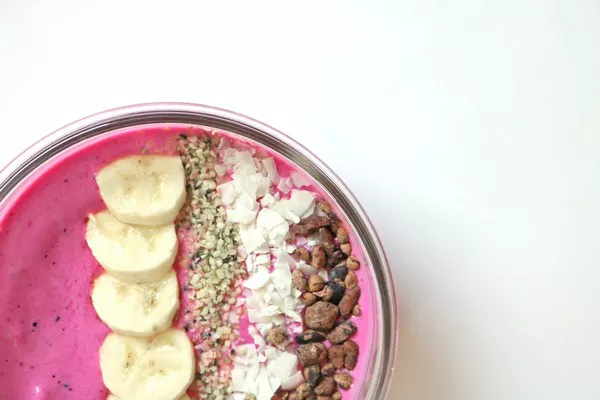In the realm of bodybuilding, where the pursuit of peak physical condition is paramount, the role of vitamins cannot be overstated. These micronutrients serve as catalysts for numerous physiological processes that are integral to muscle growth, recovery, and overall well-being. Understanding the specific vitamins crucial for bodybuilders is not merely a dietary consideration but a strategic approach to optimizing performance and fostering long-term health. This comprehensive exploration delves into the essential vitamins to take in bodybuilding, shedding light on their functions, sources, and the profound impact they have on the journey to sculpting a powerful physique.
Vitamin A
Vitamin A, often associated with vision health, plays a multifaceted role in bodybuilding. Its importance extends beyond eyesight to fundamental processes vital for fitness enthusiasts.
Vision and Low-Light Conditions:
Vitamin A is essential for maintaining healthy vision, particularly in low-light conditions. This is crucial for bodybuilders who may train during different times of the day, including early mornings or evenings.
Cellular Growth and Immune Support:
The vitamin contributes to cellular growth and differentiation, supporting the regeneration of tissues stressed during intense workouts. Additionally, it plays a role in immune function, safeguarding against illnesses that could disrupt training consistency.
Sources:
Include sources rich in preformed vitamin A (retinoids), such as liver, fish, and dairy products, as well as provitamin A (carotenoids) found in colorful fruits and vegetables like carrots and sweet potatoes.
Vitamin B
The B-vitamin complex, encompassing B1, B2, B3, B5, B6, B7, B9, and B12, forms a powerhouse of nutrients vital for energy metabolism and overall vitality.
Energy Production and Metabolism:
B-vitamins play a central role in converting food into energy, a process essential for the sustained intensity of bodybuilding workouts. They facilitate the metabolism of carbohydrates, proteins, and fats.
Red Blood Cell Formation:
Vitamin B12, in particular, is crucial for the formation of red blood cells, enhancing oxygen transport to muscles. This is integral for endurance during prolonged training sessions.
Neurotransmitter Synthesis:
Certain B-vitamins contribute to neurotransmitter synthesis, influencing mood and focus. Maintaining optimal mental well-being is pivotal for consistent and effective training.
Sources:
Incorporate a variety of foods such as whole grains, lean meats, dairy, eggs, and leafy greens to ensure an adequate intake of the B-vitamin complex.
Vitamin C
Vitamin C, renowned for its immune-boosting properties, serves as a potent antioxidant with far-reaching benefits for bodybuilders.
Antioxidant Protection:
As an antioxidant, vitamin C neutralizes free radicals generated during intense workouts. This reduces oxidative stress on muscles, aiding in recovery and minimizing inflammation.
Collagen Synthesis:
Vitamin C plays a crucial role in collagen synthesis, contributing to the health and integrity of connective tissues such as tendons and ligaments. This is vital for preventing injuries during weightlifting and strenuous exercises.
Immune Support:
Intensive training can temporarily suppress the immune system. Vitamin C fortifies immune function, reducing the risk of infections that could hinder training consistency.
Sources:
Include citrus fruits, berries, kiwi, peppers, and broccoli in your diet to ensure an ample supply of vitamin C.
Vitamin D
Often referred to as the sunshine vitamin, vitamin D is paramount for overall health and holds specific significance for bodybuilders.
Calcium Absorption and Bone Health:
Vitamin D enhances the absorption of calcium, supporting bone health. Strong bones are crucial for the structural integrity of the body, especially under the stresses of heavy lifting.
Muscle Function and Growth:
Adequate vitamin D levels are associated with improved muscle function and growth. This is pivotal for bodybuilders aiming to sculpt and strengthen their muscular physiques.
Immune Modulation:
Vitamin D exhibits immune-modulating properties, contributing to the body’s defense against infections. A robust immune system is essential for sustained training without interruptions.
Sources:
While sunlight is a natural source, dietary sources include fatty fish, fortified dairy products, and supplements if necessary, especially in regions with limited sunlight.
Vitamin E
As a powerful antioxidant, vitamin E safeguards cells from oxidative damage, making it a valuable nutrient for bodybuilders.
Cellular Integrity and Repair:
Vitamin E protects cell membranes from oxidative stress, contributing to cellular integrity. This is crucial for the repair and regeneration of cells stressed during intense workouts.
Anti-Inflammatory Properties:
The vitamin exhibits anti-inflammatory properties, aiding in the reduction of exercise-induced inflammation. This is beneficial for minimizing post-workout soreness and expediting recovery.
Sources:
Include sources rich in vitamin E such as nuts, seeds, spinach, and vegetable oils to harness its protective benefits.
Vitamin K
Vitamin K, often associated with blood clotting, plays a vital role in bone metabolism and overall skeletal health.
Calcium Regulation:
Vitamin K regulates calcium in the bones and bloodstream, contributing to bone density. This is essential for bodybuilders who subject their bones to significant stress during weight-bearing exercises.
Bone Formation and Repair:
The vitamin supports bone formation and repair, essential for maintaining the structural integrity of the skeletal system under the demands of resistance training.
Sources:
Leafy greens, broccoli, and certain vegetable oils are excellent sources of vitamin K, ensuring its incorporation into a bodybuilder’s diet.
Conclusion
In conclusion, the journey of bodybuilding extends beyond lifting weights and sculpting muscles; it involves a meticulous approach to nutrition that encompasses essential vitamins. The interplay of vitamins A, B complex, C, D, E, and K forms a comprehensive strategy for supporting energy metabolism, immune function, bone health, and cellular integrity. Crafting a nutrient-rich approach involves sourcing these vitamins from a diverse range of foods, considering individual requirements, and, when necessary, supplementing strategically. As bodybuilders embark on the pursuit of their fitness goals, the integration of these vital vitamins into their dietary regimen becomes a cornerstone for unlocking peak performance, resilience, and longevity in the demanding world of bodybuilding.
[inline_related_posts title=”You Might Be Interested In” title_align=”left” style=”list” number=”6″ align=”none” ids=”3465,3434,3432″ by=”categories” orderby=”rand” order=”DESC” hide_thumb=”no” thumb_right=”no” views=”no” date=”yes” grid_columns=”2″ post_type=”” tax=””]































